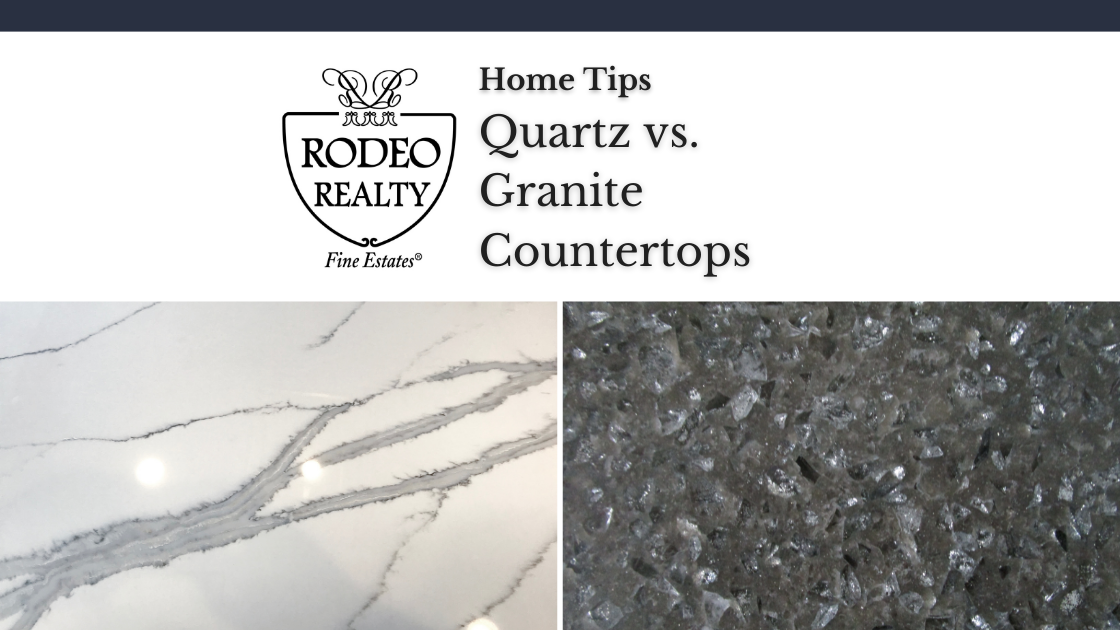This may be one of the biggest debates for homeowners, and we understand why. There are evident differences between the types of stone that most often grace your kitchen and bathroom countertops. You may be asking yourself which one is superior. Well, that answer is not simple because it depends on several factors. That’s why in this week’s blog, we’re talking quartz vs. granite countertops.
Appearance
Granite:
This stone often becomes a go-to for its unique appearance. Unlike quartz, granite is not engineered, and therefore every slab possesses slight differences in mineral pattern and color. Granite can be found in many different colors works perfect as a subtle complement to your kitchen or a standout slab.
Quartz:
The recently popular stone has gained more interest as of late due to your ability to customize the design. Quartz is an engineered stone, which means it is more uniform in appearance. With Quartz, there are many colors and unique patterns that are available. So while granite offers many options in terms of appearance, you’ll have to search for the right piece that matches your color scheme. This is, of course not the case with quartz, making the selection process easier.
Composition
Going back to what we mentioned above, the difference in the two stones comes down to material matters. Literally. Granite will always be pure natural stone that’s been directly cut into slabs from stone quarries. The stone is then polished and fabricated into countertops.
With quartz, because the countertops are engineered stone products, they still contain a large percentage of natural quartz. On the other hand, it’s important to note; they may include other minerals. Since what you are getting are not slabs of quarried stone, the stone byproducts are ground up and formed in slabs.
Cost
With either stone, you’ll be selecting a premium material that comes at a high-dollar price for a product that has to be sourced internationally. That being said, let’s break down some of the costs associated with both products.
Granite:
The cost for granite can be anymore between $2,000 and $4,000, usually and depending on any edging treatments requested. The best option to save money on your choice in stone would be to purchase the material from a wholesaler. We also recommend sticking with a professional for installation as the last thing you want to do is damage the granite you’ve just spent over $2K for.
Quartz:
The price for quartz ultimately depends on the quality. That’s why the price ranges between $1,500 and $5,500. Because engineered quartz is heavier than other stone surfaces, a professional installer would also be recommended in this case. That’s to ensure the structure you are placing it on is structurally sound, because you know…weight and everything we just mentioned.
Maintenance
Granite:
When it comes to your granite countertops, they should be cleaned daily. This should be done with soap and water or a mild household cleaner. Because granite countertops can be porous and require sealing, they can be prone to staining from certain oils and acids. To help your granite last longer, resealing is recommended.
Quartz:
Similar to granite, you’ll want to clean your counter with soap and water or a mild household cleaner. This particular piece of advice would be more about maintenance than durability. Since the solid surface does not require sealing, you won’t have to worry about damage from stains, thanks to the stone’s resins.
